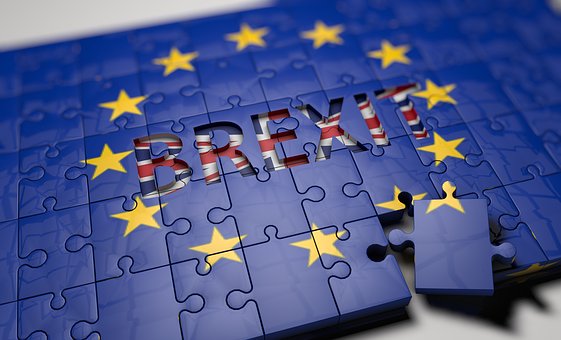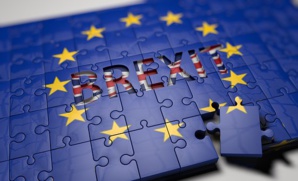A research of Oxford Economics briefed that following the “recent events” the “likelihood” of the European Union and the United Kingdom coming to “a mutual agreement” post Brexit has “reduced” since it “appears” that Britain has “made little effort” to set ball rolling on “separation talks”.
The “next round of talks” is scheduled for “next week”, while the government of the U.K. has come up with many “proposals” regarding “Britain in a post-EU world” through “position papers” authorised by “prominent cabinet ministers”, whereby weakening the confidence of the “lead UK Economist” at Oxford Economics on Brexit talks’ ability on “separation and transition” to conclude successfully.
Furthermore, the government handling “questions surrounding transition” is another reason for the “uncertainty”. In taking the talks forward, the U.K. “accepted” the demands of EU, whereby “separation issues would be the first topic of conversation” and the future of trading will take a back seat “until sufficient progress” takes place with former topics.
Therefore, reported Digitallook, “Goodwin believed that any attempts to shift focus towards trade agreements would be a ‘risky strategy,’ as if no progress is made on the topic of separation then the EU could possibly look to leave the table as chief negotiator for the EU, Michael Barnier has been given a mandate from the European Council to negotiate on separation and separation only.”
Goodwin also ‘re-forecasted’ the success “probability of the talks”, whereby bringing it down to 60% from 70%, as according to him “no credible post-Brexit customs arrangement had been proposed”. Therefore, Goodwin thinks that “the UK will have to sit through transitional agreements before any form of future free-trade agreement was discussed”. While Digitallook added:
“The 40% chance of failure is the worst it has been this year and is just ahead of a 'no deal' scenario”.
References:
www.digitallook.com
The “next round of talks” is scheduled for “next week”, while the government of the U.K. has come up with many “proposals” regarding “Britain in a post-EU world” through “position papers” authorised by “prominent cabinet ministers”, whereby weakening the confidence of the “lead UK Economist” at Oxford Economics on Brexit talks’ ability on “separation and transition” to conclude successfully.
Furthermore, the government handling “questions surrounding transition” is another reason for the “uncertainty”. In taking the talks forward, the U.K. “accepted” the demands of EU, whereby “separation issues would be the first topic of conversation” and the future of trading will take a back seat “until sufficient progress” takes place with former topics.
Therefore, reported Digitallook, “Goodwin believed that any attempts to shift focus towards trade agreements would be a ‘risky strategy,’ as if no progress is made on the topic of separation then the EU could possibly look to leave the table as chief negotiator for the EU, Michael Barnier has been given a mandate from the European Council to negotiate on separation and separation only.”
Goodwin also ‘re-forecasted’ the success “probability of the talks”, whereby bringing it down to 60% from 70%, as according to him “no credible post-Brexit customs arrangement had been proposed”. Therefore, Goodwin thinks that “the UK will have to sit through transitional agreements before any form of future free-trade agreement was discussed”. While Digitallook added:
“The 40% chance of failure is the worst it has been this year and is just ahead of a 'no deal' scenario”.
References:
www.digitallook.com






